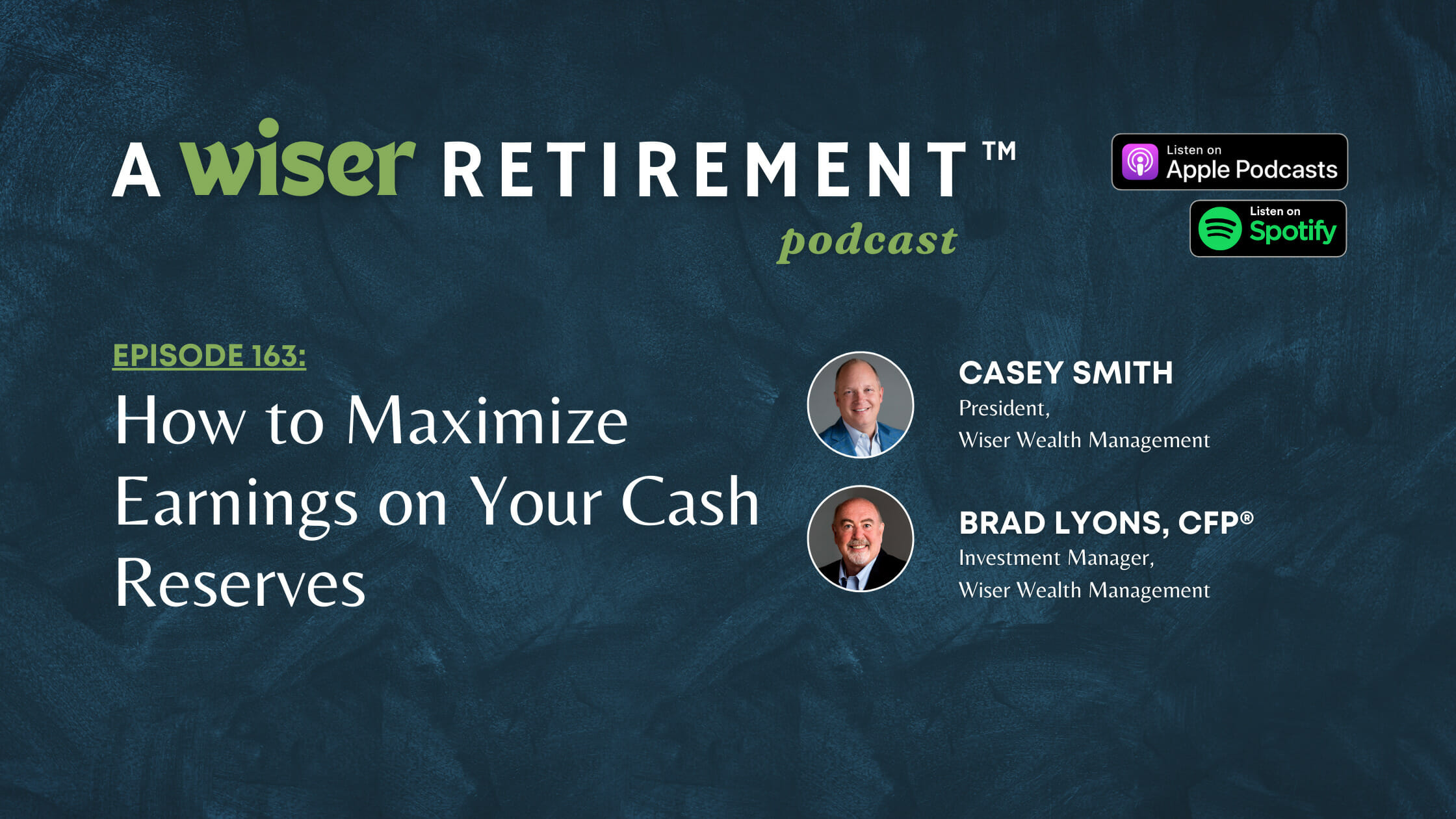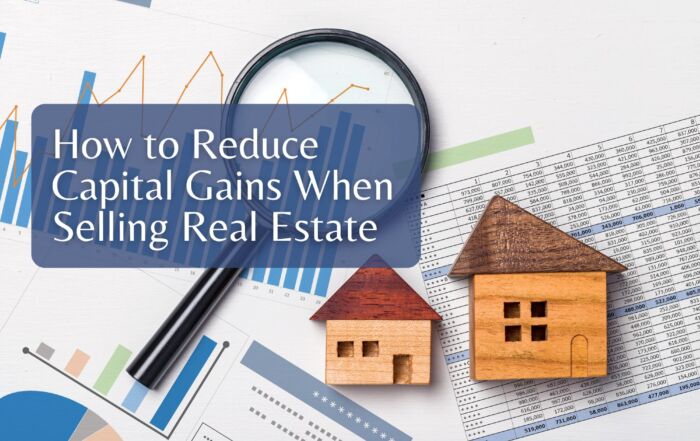
How to Maximize Earnings on Your Cash Reserves
On this episode of A Wiser Retirement™ Podcast, Casey Smith and Brad Lyons, CFP® talk about how to maximize earnings on your cash reserves and cover the basics of ESG investing.
Listen on Apple Podcasts or watch on YouTube:
SUMMARY:
ESG Investing
As much as we don’t love ESG investing, we recognize that it exists and has gained a space in the investment world. Sometimes people don’t realize that the S&P500 has the best ESG rating there is. However, big investment management firms will try to get you to invest in ESG funds that will end up costing you a lot of money. In Q1 2023, 5.2 billion has flowed out of ESG funds across the board. The majority of that actually came from ESGU. As advisors, our job is not always to give people of they want, because many times they don’t understand what they want. Many people will ask for an ESG-focused portfolio. However, advisors should focus on the client’s goals, and show them that other options can help them reach those goals in a more cost-effective way, while also focusing on the environment.
What should you do with your savings?
A silver lining from all the economic uncertainty that we’ve seen recently is the high yield offered on many new savings accounts. Interest rates are varying from 4% to around 4.85%. In contrast, interest rates in regular savings accounts are not even close to the 1% mark. Yet, many Americans, have been slow in moving their savings to these high-yield accounts. Thus, missing out on a chance to maximize the earnings on their cash reserves.
Why not put all of my money in a high-yield savings account?
Many people have asked if it would be wise to pull out money from their portfolio investments and keep it in a high-yield savings account. This would be a comfortable investment in the short term. Nonetheless, keeping your money in the bank in the long term is a certain way of losing money over time due to inflation and taxes. When looking at cash allocations, we consider short term, medium term, and long term. So, the money we would advise putting into a high-yield savings account is the money you might need access to in the short term, such as your emergency savings.
2023 Was Expected to be The Worst Year for Investing
In 2023, the S&P500 has been up around 7%. After 2022, when interest rates rose drastically, it was expected for the market to rise in 2023 because that’s what we’ve seen historically. When we look back in our country’s economic history, the time period from 1994 through 1998 economically resembles our current times. Back then, the Fed seemed to have used a similar strategy as today. They doubled interest rates in the period of a year, going from 3% to 6%. This was the one time the Fed was able to create a soft-landing in the economy. A few of the reasons why that was possible was because the unemployment rate was very low, and technology was beginning to bloom in our country. Luckily, we can see a lot of similarities with our current times, with record low unemployment rates, and new technology starting again to take over, such as AI and blockchain. What we saw after that period was a big hike in the stock market. This ties back to the possible reason why 2023 is not performing poorly as many thought it would.
Download our eBook on “Buyer Beware: Why do they keep trying to sell you that annuity?”
TIMESTAMPS:
0:00 Intro
1:20 ESG investing
8:30 What should you do with your savings?
13:35 Why not put all of my money in a high-yield savings account?
21:58 This Year Was Expected to be the Worst Year for Investing
LINKS:
Learn more about Casey Smith and Brad Lyons, CFP®
CONNECT:
Twitter, Instagram, Facebook, LinkedIn, and YouTube.
Learn more about A Wiser Retirement™ podcast and access previous episodes.
Share This Story, Choose Your Platform!
Wiser Wealth Management, Inc (“Wiser Wealth”) is a registered investment adviser with the U.S. Securities and Exchange Commission (SEC). As a registered investment adviser, Wiser Wealth and its employees are subject to various rules, filings, and requirements. You can visit the SEC’s website here to obtain further information on our firm or investment adviser’s registration.
Wiser Wealth’s website provides general information regarding our business along with access to additional investment related information, various financial calculators, and external / third party links. Material presented on this website is believed to be from reliable sources and is meant for informational purposes only. Wiser Wealth does not endorse or accept responsibility for the content of any third-party website and is not affiliated with any third-party website or social media page. Wiser Wealth does not expressly or implicitly adopt or endorse any of the expressions, opinions or content posted by third party websites or on social media pages. While Wiser Wealth uses reasonable efforts to obtain information from sources it believes to be reliable, we make no representation that the information or opinions contained in our publications are accurate, reliable, or complete.
To the extent that you utilize any financial calculators or links in our website, you acknowledge and understand that the information provided to you should not be construed as personal investment advice from Wiser Wealth or any of its investment professionals. Advice provided by Wiser Wealth is given only within the context of our contractual agreement with the client. Wiser Wealth does not offer legal, accounting or tax advice. Consult your own attorney, accountant, and other professionals for these services.





